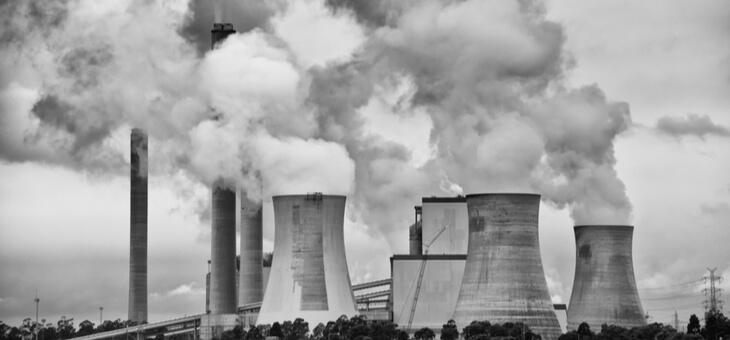Australia’s 10 most polluted postcodes have been revealed and six of them share one particular characteristic.
Research from the Australian Conservation Foundation (ACF) has unearthed the 10 most polluted postcodes in Australia and, surprisingly, none of them are within a capital city metropolitan area.
The ACF research measured levels of five dangerous pollutants: coarse particulate matter, fine particulates, sulphur dioxide, nitrogen oxide and mercury.
Read: How air pollution affects brain function
The top 10 most polluted postcodes were:
- Mount Isa, Qld (4825)
- Newman, WA (6753)
- Muswellbrook, NSW (2333)
- Tom Price, WA (6751)
- Traralgon, Vic (3844)
- Gladstone, Qld (4680)
- Stanwell, Qld (4680)
- Collie, WA (6225)
- Tarong, Qld (4615)
- Kalgoorlie, WA (6431)
Western Australia and Queensland are overrepresented in the list, with four postcodes each in the top 10, while South Australia, Tasmania and the Northern Territory managed to escape the list entirely.
Six of these postcodes are home to coal-fired power stations or coal mines.
Read: Chemical pollution causing infertility, smaller penises
Stanwell, Gladstone and Tarong in Queensland, Muswellbrook in NSW, Traralgon in Victoria and Collie in WA are home to some of Australia’s oldest and dirtiest power stations and mines. Tasmania, SA and the NT have no coal-fired power plants and no coal mining operations within their borders.
The other four localities –Newman, Tom Price and Kalgoorlie in WA plus Mount Isa in Queensland – are home to iron ore, copper, lead, zinc, silver and gold mines.
The ACF says a lack of national air quality standards means some communities will always be subject to dirtier air than others.
The group is calling on the next government to commit to closing coal-fired power stations and coal mining operations.
Read: Calculating the cost of cleaning the air that we breathe at home
“Air pollution kills around 3000 Australians every year and worsens conditions such as asthma, emphysema, chronic bronchitis and other respiratory diseases,” says Matthew Rose, economy and democracy program manager at the ACF.
“Coal-fired power continues to be a major contributor to serious health problems in Australia.
“Closing coal-fired power stations is essential to tackling climate change, but without a federal plan to manage the transition, the changes will be highly disruptive for certain communities.”
Mr Rose says Australia must develop new, nationally consistent air quality standards and a coherent national plan to manage the shift to a clean energy future.
Neither major party is taking a position on ending coal production in Australia, with both seemingly reluctant to lose votes in these rural constituencies.
In fact, climate change as an issue seems to have been relegated to the back of the pack this election campaign.
If you enjoy our content, don’t keep it to yourself. Share our free eNews with your friends and encourage them to sign up.

